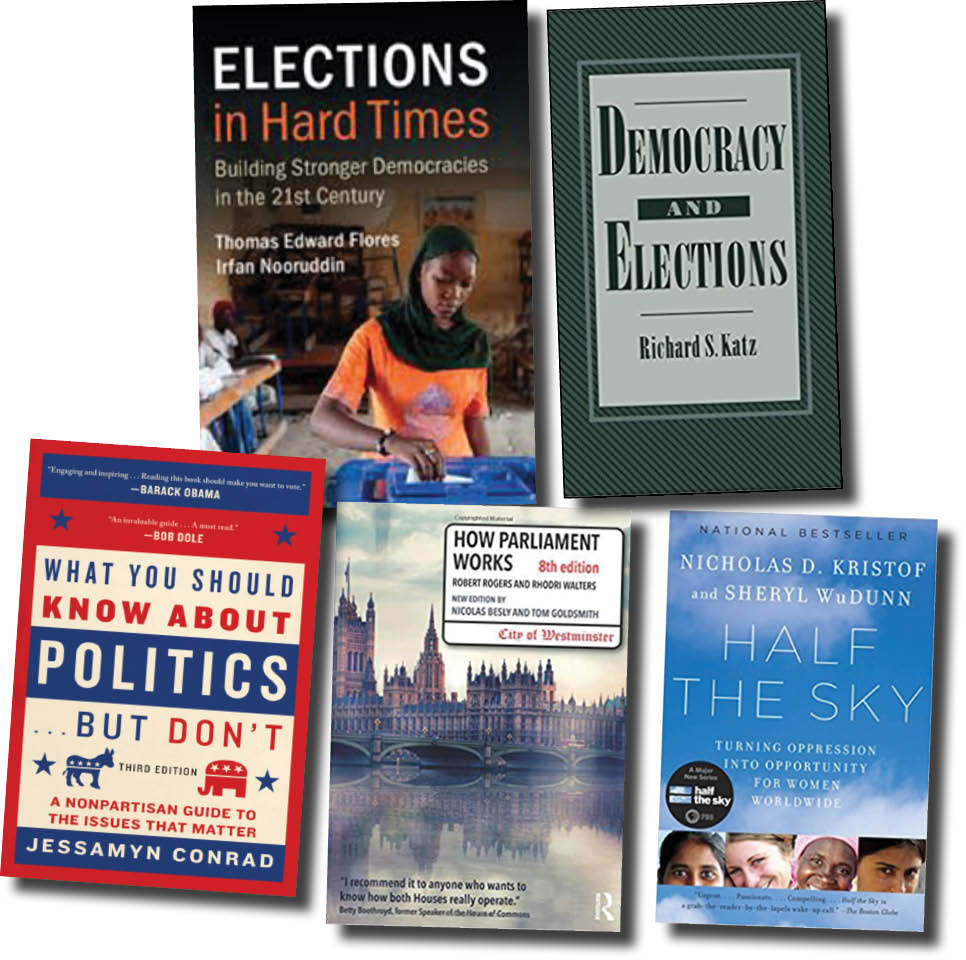Five books to savour as we await election results
Now that you have voted, what next? We wait for the INEC to declare the results as they are the ones mandated by law to do this duty. While we wait, we thump our fingers, we read the papers, we keep a close watch on television to know what is going on. But like Aisha […]

Now that you have voted, what next? We wait for the INEC to declare the results as they are the ones mandated by law to do this duty. While we wait, we thump our fingers, we read the papers, we keep a close watch on television to know what is going on. But like Aisha Oyebode rightly observed at the annual award lecture of the Murtala Mohammed foundation in remembrance of Nigeria’s former head of state, elections are not supposed to be an event, it should be the day we vote for a process.
And therein she further reiterated lies the challenge. In her opening remarks as CEO of the foundation, she admonished Nigerians to follow through the process with good governance and accountability and not wait for another four years to be interested in our political life. Mrs Oyebode could not have been more right. So now we have voted.
As the results begin to trickle in, let us remember that whoever gets elected was voted in there by us all and must then be held accountable to their promises, manifestoes and plans to make our lives better. It is indeed a politically frenetic season, international and domestic observers are everywhere and Nigerians are waiting to get the results.
Invited to speak at an event organized by some high level international organization, I was not surprised by the concern around fake news of most including former vice president of the Gambia and a Governor from Kenya among others. Indeed, as rightly noted by the world economic forum in 2013, internet wildfires continue to pose a challenge to the world.
It is critical to note that fake news and the role of traditional and new media in escalating fake news is a matter of concern to all stakeholders during the electoral cycle. Post voting, fake news and unrest must never be allowed to raise its head. Every Nigerian must commit to self-control and maturity in dealing with the results.
A good sign as always is the signing of the peace accord by all presidential candidates. As we wait, there are certain books that I am recommending today considering general post- election aftermath like distrust and disappointment.
These are books of interest and like waiting for a penalty in a football match or watching a full football match, there is always the need to binge in the wait. So let’s binge on these books as we all wait for our democratic process to yield in peace.
1) Elections in hard times, building stronger democracies in the 21st century by Thomas Edward and Irfan Noorudeen. This publication with contributions by the United Nations is a synthesis of 50 years of research on elections and democracy and a good resource for policy makers, experts and students. There are five empirical chapters with an eclectic mix of cross national data, short case studies and survey of voters. It answers the critical question of democratic backsliding in some nations with peaceful elections. It shows again that democracy is wholesome and involves leadership, accountability, good governance and citizen’s engagement. A useful book at this time.
2) Democracy and Elections, a handbook for gender-inclusive election in commonwealth Africa, Achieving 50:50 by 2030. This book reviews the systems, legislation and best practice that will need to be implemented and effectively monitored to get more women into politics to realize sustainable development goal 5 and achieve gender equality and empower all women and girls. As you all know gender equity and equality in the political landscape in Nigeria is not yet uhuru. Stakeholders must not rest on their oars and wait until it is a quarter to the next election. The work must be continuous.
3) What you should know about politics but don’t, a non-partisan guide to issues that matter by Jessamyn Conrad. This book is described by former American President, Barrack Obama as “engaging and inspiring” It is a guide book that can be domesticated anywhere in the world. Explaining politics can be daunting but this book breaks it down.
4) How Parliament Works written by Robert Rogers and Rhoori Walters, both of whom work in the UK parliament. The book gives a unique insight into the work and daily life of parliament. It sets out plainly and intelligently to give what goes on and why things happen in parliament. As always across many countries, Nigeria inclusive, many persons leave legislating alone and believe they cannot understand it. Although it is shown on television and occupies many news pages and online platforms, most persons including some legislators find what they do pretty perplexing. After the results come in this time, make a promise to yourself that you will learn what legislators do and be bullish about holding them accountable to represent you well. How parliament works even though it’s written for another clime will give you the leg up in understanding what they are actually supposed to do as your representative.
5) Half the Sky, turning oppression into opportunity for owners worldwide is a nonfiction book by Pulitzer prize winners and husband and wife team, Nicholas Kristof and Sheryl Wudunn. It is a call to arm against our era’s most pervasive human rights violation: the oppression of women and girls in the developing world. An issue that can be resolved by political will and stakeholder consensus across the political divide. An important book for policy makers and those we are trusting with our democracy for 2019.
